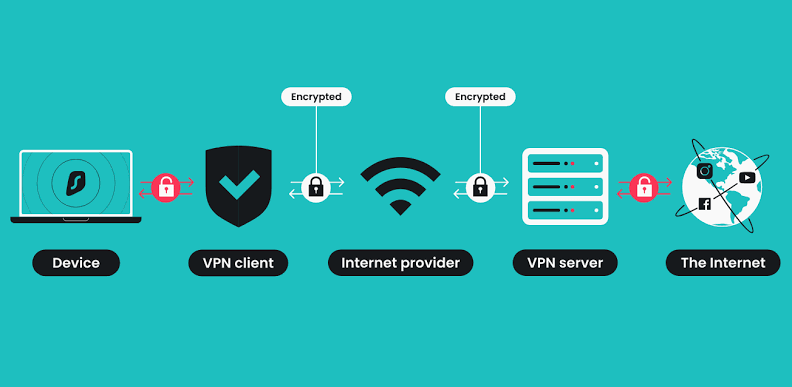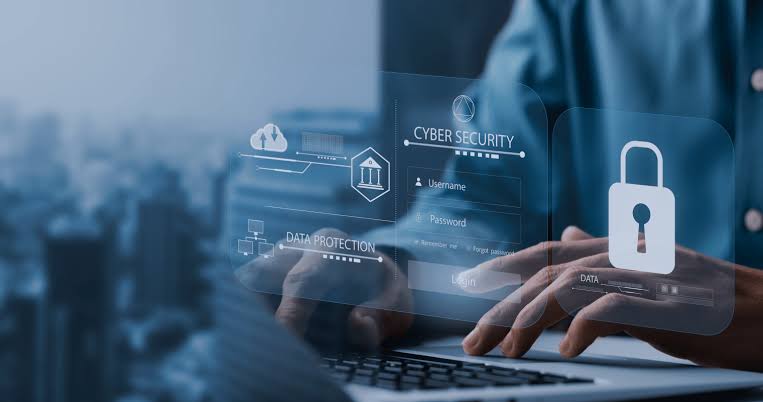In today’s increasingly connected digital world, online privacy and data protection have become essential. As cyber threats rise and personal information becomes more vulnerable to exploitation, Virtual Private Networks (VPNs) have emerged as a powerful tool for safeguarding users’ online activities. In 2025, using VPNs securely has become a widespread practice among individuals, corporations, and governments alike. However, the benefits of VPNs go beyond just hiding your IP address — when used properly, they can be instrumental in maintaining freedom, privacy, and digital efficiency.
Understanding how VPNs work, and how to use them securely, is critical in maximizing their benefits without exposing oneself to further risks.
Enhancing Online Privacy
One of the most important benefits of using a VPN securely is the preservation of personal privacy. A VPN encrypts your internet connection and hides your IP address by routing your traffic through a remote server. This prevents your internet service provider (ISP), hackers, and websites from tracking your activities or collecting sensitive data.
When used correctly:
- VPNs mask your geographical location, making it harder for advertisers to track your online behavior.
- Your browsing history remains hidden from third parties, even on public networks.
- Sensitive personal data, such as login credentials or financial information, is encrypted end-to-end.
For people living in countries with high surveillance or limited internet freedom, VPNs also provide a way to maintain privacy in the face of digital censorship and monitoring.
Securing Public Wi-Fi Connections
Public Wi-Fi networks in cafes, airports, hotels, and malls are convenient but notoriously insecure. Hackers often exploit these networks to intercept unprotected data. A secure VPN creates a protected tunnel between your device and the internet, making it nearly impossible for cybercriminals to see what you’re doing.
Some major security advantages include:
- Preventing Man-in-the-Middle (MitM) attacks where hackers intercept data exchanges.
- Securing file transfers and communication apps on open networks.
- Blocking malicious attempts to steal banking or personal details through fake Wi-Fi access points.
VPNs act as a shield for your device, especially when you are forced to rely on untrusted internet sources.
Bypassing Geo-Restrictions and Censorship
Many websites, apps, and services limit content access based on a user’s physical location. With the rise of content licensing regulations and government-imposed censorship, users often find themselves blocked from accessing certain platforms or information. Secure VPN use allows users to change their apparent location and bypass these digital restrictions.
By doing so, users can:
- Access streaming platforms like Netflix, Hulu, or BBC iPlayer from any region.
- View websites and news portals that are blocked in certain countries.
- Participate in open social media dialogue even in environments with strict speech regulations.
However, it’s important to note that using a VPN to circumvent restrictions should always comply with local laws and platform terms of service.
Supporting Remote Work and Secure Business Operations
The global increase in remote work has made VPNs a necessary tool for businesses that want to protect sensitive internal data. Companies in 2025 rely on VPNs to ensure their employees can access corporate systems securely from anywhere in the world.
When properly configured:
- Employees can access internal databases, email servers, and applications safely.
- Corporate VPNs provide centralized control over user access and activity.
- Business data is protected from interception during transmission, even over home or public networks.
Using VPNs also reduces the risk of data leaks caused by weak home internet security, and helps businesses meet compliance standards such as GDPR or HIPAA.
Avoiding Price Discrimination and Tracking
Online retailers, travel booking websites, and service providers often use dynamic pricing models based on a user’s location or browsing history. VPNs offer a way to bypass such practices and secure fair pricing.
With a secure VPN:
- Users can compare prices from multiple geographic regions.
- They can avoid repeated tracking that causes prices to rise after multiple searches.
- Advertisers are unable to build a consistent behavioral profile across sessions.
This enables consumers to take control of their online shopping experience, avoid targeted marketing manipulation, and potentially save money.
Protecting Voice and Video Communications
Voice over Internet Protocol (VoIP) applications like Zoom, Skype, and WhatsApp are widely used for both personal and professional communication. However, they are vulnerable to interception, particularly in regions with strict surveillance.
Using a VPN ensures that:
- VoIP calls and video chats are encrypted, reducing the chance of eavesdropping.
- Calls bypass local network restrictions or VoIP bans.
- Communication metadata is protected from being logged or traced.
This provides peace of mind for users who conduct confidential meetings or share sensitive information online.
Key Guidelines for Using VPNs Securely
While VPNs are powerful, their effectiveness depends on how securely they are used. Careless VPN usage can lead to data leaks or expose users to malicious networks.
To ensure maximum benefit and security, users should:
- Choose a reputable VPN provider that offers strong encryption, a strict no-logs policy, and multi-platform support.
- Avoid free VPN services that may sell user data or offer weak protection.
- Enable kill switches to prevent accidental exposure if the VPN connection drops.
- Regularly update VPN software to patch vulnerabilities and ensure compatibility.
- Use two-factor authentication (2FA) where possible for added account protection.
Practicing safe VPN habits ensures that users get full privacy and security benefits without falling victim to fake or exploitative services.
Empowering Users in a Surveillance Era
In an era where governments and corporations routinely collect data on user behavior, secure VPN usage empowers individuals to reclaim some measure of control. From journalists and activists operating under oppressive regimes, to regular internet users who value their privacy, VPNs have become a vital tool in preserving freedom and dignity online.
Furthermore, as AI-driven surveillance expands, VPNs act as an effective countermeasure, masking patterns and behaviors that would otherwise be easily analyzed.
Conclusion
Using Virtual Private Networks securely in 2025 is not just a matter of convenience — it is a fundamental necessity in the digital age. From protecting privacy and ensuring data security to bypassing censorship and supporting global connectivity, the advantages are vast.
However, with great power comes responsibility. Only when VPNs are used wisely — with trusted providers, strong encryption, and informed habits — can users fully enjoy the benefits without unintended risks. As the internet grows more complex and vulnerable, VPNs remain a critical defense for digital freedom, privacy, and access.



